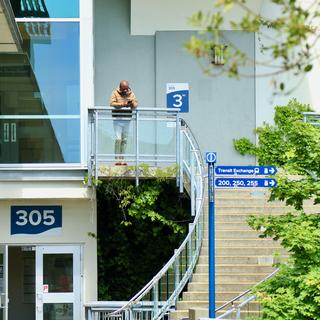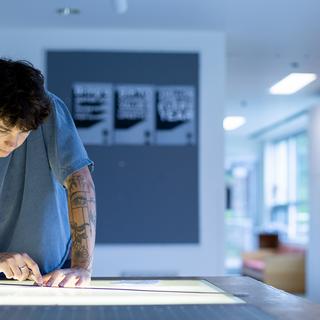Tutors are needed at both the Nanaimo and Cowichan campuses.
A decision to help his daughter’s brother-in-law with a physics course years ago opened the door to a position as a volunteer tutor with Vancouver Island University (VIU) for John Hofman.
“Being retired, I offered to help him with the course that was troubling him,” recalled Hofman. “I really enjoyed the experience and started making enquiries to continue with tutoring. I was referred to VIU’s Adult Basic Education program by Literacy Central Vancouver Island to get started with volunteer tutoring."
Having been with the program for a number of years now, Hofman said being a volunteer tutor is “mentally stimulating and rewarding. It helps to keep my retirement brain working in a real-world setting. It provides an opportunity to have vivid and meaningful encounters with young adults, and helping them achieve their goals can be gratifying. Tutoring keeps me occupied and brings some regularity and purpose to my life.”
Volunteer tutors have been active since the mid-1980s, providing one-on-one help, encouragement and support to adult learners. Most tutors work with students in areas such as writing skills, essays or math. Some tutors work with people who are learning to read and write. Other tutors help individuals prepare for program assessments. Tutors also work with students who speak English as a second language.
Students and tutors are matched by the program coordinator according to the needs of students and the interests, experience and availability of tutors. The student is interviewed to determine needs and then a suitable tutor is given an overview of the situation. The tutor then contacts the student directly and sets up a time and place to meet. Most “pairs” are encouraged to work together for one hour a week, at mutually convenient times. Tutoring sessions can take place in person or virtually.
All tutors complete a free training program before being matched with a learner. Training is usually offered twice a year, in September and January, but may occur at any time that there is a need. The purpose of training, besides the introduction of practical skills, is to raise awareness about the issues of adult education. It is also a chance for the coordinator to get to know new tutors, which is important when matching students and tutors. The coordinator is available to volunteer tutors for support, consultation and resources.
If you are interested in becoming a volunteer tutor, you can email the program coordinator for more information.The coordinator will send you a welcome package and arrange an interview. This casual interview will allow you to meet the coordinator, discuss the program, ask questions and tour the campus. You can then determine whether this is a volunteer activity that you want to pursue and the coordinator will be able to determine if you are a suitable candidate.




